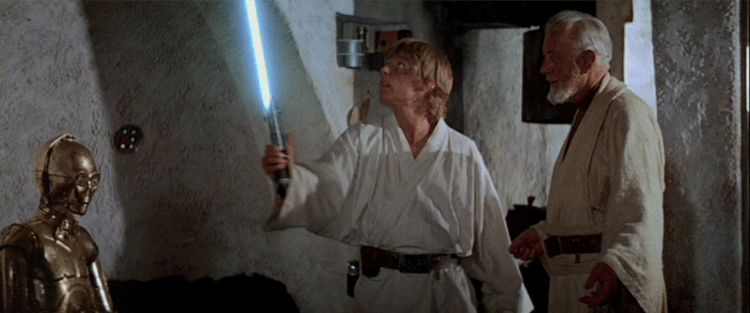I spend a lot of time here on the 2 most important rules for proposals, which is really a version of The Hero’s Journey in short form:
- A proposal is a story, not a brochure.
- The hero of the story is the customer, not the prospect.
Just following these rules will put your proposals ahead of most of your competitors’, but what makes a good story? What makes a compelling proposal?
Good storytelling helps us empathize with the hero. This is why we end up rooting for the robbers in the heist story. (Hopefully we’re not selling to robbers– the point is that we understand the motivations of the hero.)
When you write a proposal, can you empathize with the hero (your prospect)? Do his or her motivations make sense?
If not, you have a flat story that’s not compelling. While this will cost you money in Hollywood, it will kill your whole deal in a proposal.
If your proposals are flat, it’s usually because you haven’t flushed out the hero (and perhaps the villain, too).
Compare:
“This system will deliver 42.3% ROI and drive strategic synergies… blah, blah, blah…”
to:
“We guarantee the system will go-live by the end of the quarter, so the plant can meet its efficiency targets [so you can have a big win, a big bonus, and get that promotion that moves you back to your home town as a big hero].”
Or, compare:
“We keep your IT systems running so you don’t have to worry about it.”
to:
“You never have to miss coaching another one of your daughter’s soccer games.”
We have to get to know the hero to know the real story and motivations. We can’t just put a generic blurb in our proposals about the prospect’s daughter’s soccer games, because that won’t apply to most people.
Fortunately, we have it easier than scriptwriters. They have to make this stuff up which is hard work (really hard, if we can judge by the number of awful sequels and reboots that keep recycling the same stories). We have it much easier. We can just ask. Keep asking “why?” and “what’s the result of that?” until you have a fully-formed hero. Someone the audience — the hero(ine)– finds relatable.
One important note– if you ask these questions just to “close the deal” versus actually helping the customer (see Language Traps for more on how these small shifts in language impact you and those around you), you’ll turn off the prospect and not get good responses. If you are trying to genuinely help, you’ll be much more effective. Think “friendly doctor” versus “used car salesman”. Think “helping a friend” versus “selling a stranger”.
Then you’ll have a hero in full, and you’ll understand the real drivers of the story, so you can tell the story back to the prospect, and present the solution that helps the hero solve the real problem.

